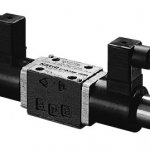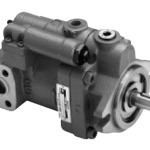Air Compressor Overheating: Causes, Diagnostics & Fixes
An air compressor is the heartbeat of many industrial and commercial operations. From powering pneumatic tools to driving automated systems, its reliability is essential. But when your compressor starts running too hot, it’s not just an inconvenience – it’s a warning sign. Overheating can cause system inefficiencies, shorten equipment lifespan, and even create safety risks.
Before you rush to replace it, it’s important to understand why air compressors overheat, how to diagnose the issues, and what you can do to fix it with Air & Hydraulic Equipment.
Common Causes of Air Compressors Overheating
Poor Ventilation
Air compressors generate significant heat during operation. If the unit is installed in a confined or poorly ventilated area, that heat can’t dissipate efficiently. Over time, this buildup leads to higher operating temperatures and increased wear on internal components.
Dirty Filters
Clogged or dirty air filters restrict airflow, making your compressor work harder to pull in air. This extra strain increases the temperature inside the system, much like running a marathon with a blocked airway.
Low Oil Levels
Oil lubricates the moving parts inside the compressor. When oil levels drop too low – or the oil itself degrades – it can’t effectively reduce friction, leading to rapid temperature spikes and potential internal damage.
Faulty Cooling System
Whether air- or water-cooled, every compressor relies on a cooling mechanism to manage heat. Blockages, damaged fans, or a malfunctioning heat exchanger can all contribute to overheating.
Overworking the Compressor
Running a compressor continuously without giving it time to rest or cycling it beyond its designed duty cycle is a common cause of heat buildup. This overuse not only raises temperatures but also accelerates mechanical fatigue.
How to Diagnose Overheating Problems
Diagnosing overheating issues requires a methodical approach. Here’s how you can narrow down the problem:
Check Ambient Conditions
Measure the room temperature and verify that ventilation systems are functional. Compressors operating in hot or enclosed environments may need additional airflow or cooling.
Inspect the Oil
Look for discoloration or sludge buildup. Dark or burnt-smelling oil can signal excessive heat or contamination.
Review Maintenance Logs
Has the compressor been serviced regularly? Missed filter replacements or skipped oil changes often correlate directly with overheating issues.
Use Thermal Imaging or Sensors
Many modern air compressors for sale now come with smart diagnostics or thermal monitoring systems. These tools can help you identify heat patterns and pinpoint failing components.
Evaluate Duty Cycle
Compare actual usage against manufacturer specifications. If your compressor runs at 100% capacity when it’s rated for 70%, overheating is inevitable.
Fixing Air Compressor Overheating Issues
Improve Airflow
Start with the basics: ensure proper spacing around the compressor and remove any obstructions to ventilation. If necessary, install exhaust fans or ducts to channel heat away from the unit.
Replace or Clean Filters
Filters should be checked and cleaned regularly. A simple maintenance step like this can dramatically lower internal friction and heat damage.
Inspect Cooling Components
Clean condenser coils, check fan belts, and flush water-cooling systems. These preventive steps keep cooling mechanisms running efficiently.
Right-Size Your Compressor
If you’ve outgrown your current system, upgrading may be the best solution. Many air compressors for sale today are designed with energy-efficient cooling systems and smart monitoring to prevent future overheating.
Air & Hydraulic Equipment: Air Compressors for Sale & Services
If you’ve followed all troubleshooting steps and your compressor still runs hot, it’s time to consult a professional. Air & Hydraulic Equipment has been helping industries across the Southeast maintain, repair, and optimize their compressed air systems for over 70 years.
Whether you need troubleshooting assistance or are looking for air compressors for sale that meet your exact operational demands, we can guide you toward the best solution for your facility.
Ready to improve your system’s reliability? Contact us at Air & Hydraulic Equipment to learn more or connect with our service team today.










